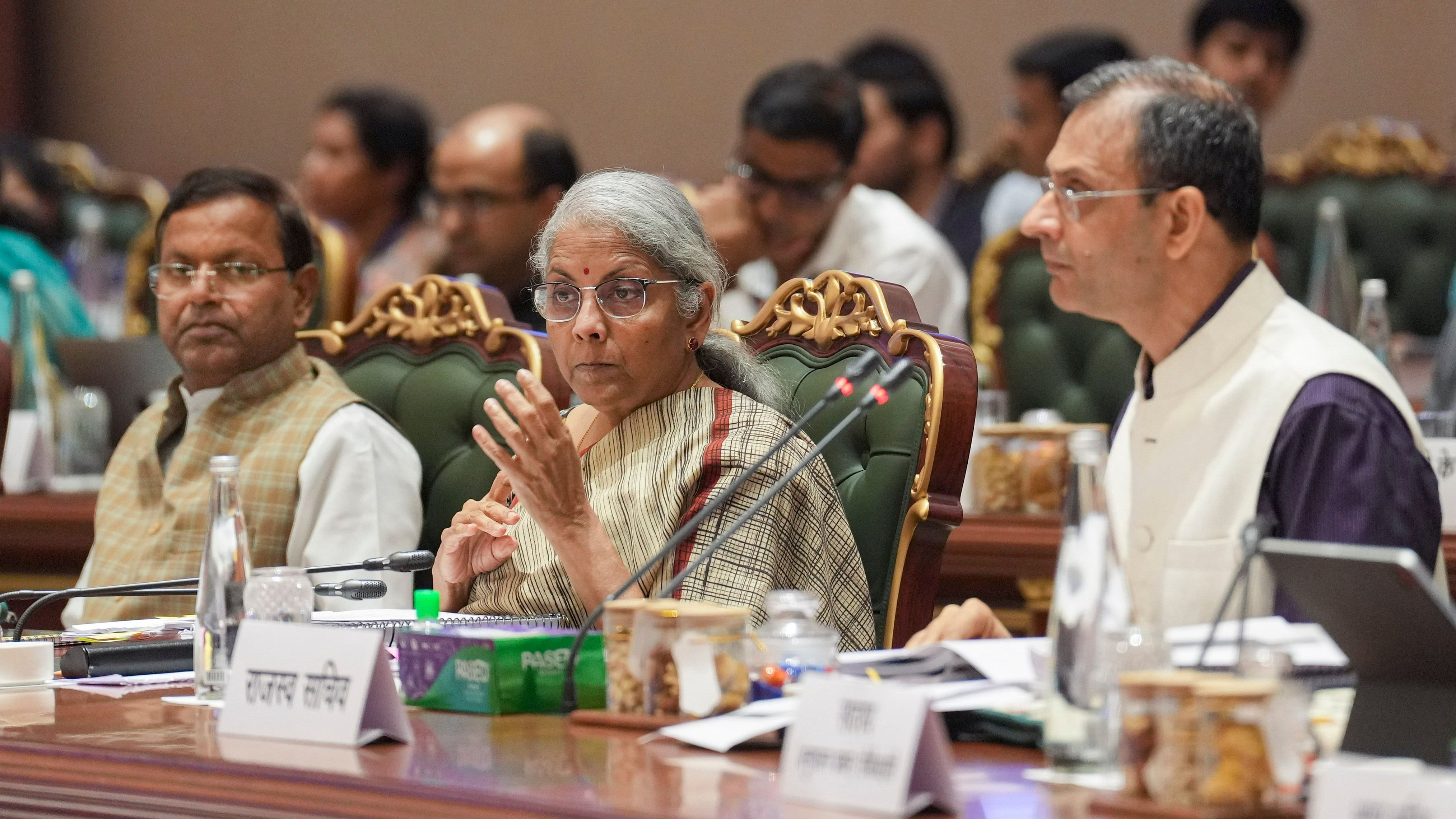
Union Finance Minister Nirmala Sitharaman chairs the GST Council meeting in New Delhi on Saturday.
Credit: PTI Photo
New Delhi: The Goods and Services Tax (GST) Council on Saturday took a number of decisions to strengthen the indirect tax system and provide relief to common man by lowering or exempting taxes on several products and services.
Services provided by the railways like platform tickets, waiting and cloak room facilities, battery-operated car services and intra-railway transactions have been exempted from GST.
In a major relief to students, the Council, chaired by Union Finance Minister Nirmala Sitharaman, decided to exempt services by way of hostel accommodation outside educational institutions up to Rs 20,000 per person per month. Hostels within educational institutions are already exempted from the GST.
A uniform rate of 12 per cent GST will be levied on all milk cans. The council has also recommended a uniform GST rate of 12 per cent on all carton boxes and cases. “This will particularly help the apple growers of Himachal Pradesh and Jammu and Kashmir,” Sitharaman told reporters after the GST Council meeting.
In a bid to curb fraudulent input tax credit claims, the council has recommended a rollout of Aadhaar-based biometric authentication of applicants on a pan-India basis in a phased manner.
The move will strengthen the registration process in GST and help in combating fraudulent input tax credit (ITC) claims made through fake invoices.
The GST Council meeting was held after a gap of over 8 months. This was the 53rd meeting of the Council, which has representation from all states, and the first since the Modi-led NDA government came to power at the Centre.
The council referred a recommendation on exempting the fertiliser sector from the current 5% GST to the Group of Ministers on rate rationalisation. Bihar’s deputy chief minister Samrat Choudhary has been made the Chairman of the GoM of Rate Rationalisation. The ministerial panel will submit a status quo report on the work done for the rate rationalisation in the 54th GST Council meeting likely to happen in mid-August.
On the issue of bringing petrol and diesel under the GST, Sitharaman said: “It is up to the states to decide and come together and get petrol and diesel into GST. The intent of the central government is clear, we want the GST to include petrol and diesel.”
To help small taxpayers, the council recommended extending the time limit to furnish the details and the returns in form GSTR 4 from April 30 to June 30. This will apply for for the financial year 2024-25 onwards.
Interest and penalties for demand notices issued under Section 73 of the GST Act, including cases not involving fraud, suppression or misstatements, will be waived.
“Several procedures have been tweaked clearly indicating the desire to simplify the GST processes while making it difficult for non-compliant taxpayers,” said MS Mani, Partner, Deloitte India.
While the rate rationalisation exercise is expected to take time, it would be good to have a broad time frame to achieve the goal of fewer rates as this is one of the key areas of simplifying GST and improving the ease of doing business, Mani added.
To reduce government litigation, the council has recommended a monetary limit of Rs 20 lakh for the GST Appellate Tribunal, Rs 1 crore for the High Courts and Rs 2 crore for the Supreme Court for filing of appeals by the department.
Highlights - Railway services such as platform tickets, waiting and cloak room facilities exempted Hostel accommodation outside edu institutions exempted by up to Rs 20,000 per person per month Aadhaar-based authentication to curb fake input tax credit mandated A uniform rate of 12% GST on all milk cans; uniform GST rate of 12 per cent on all carton boxes and cases recommended